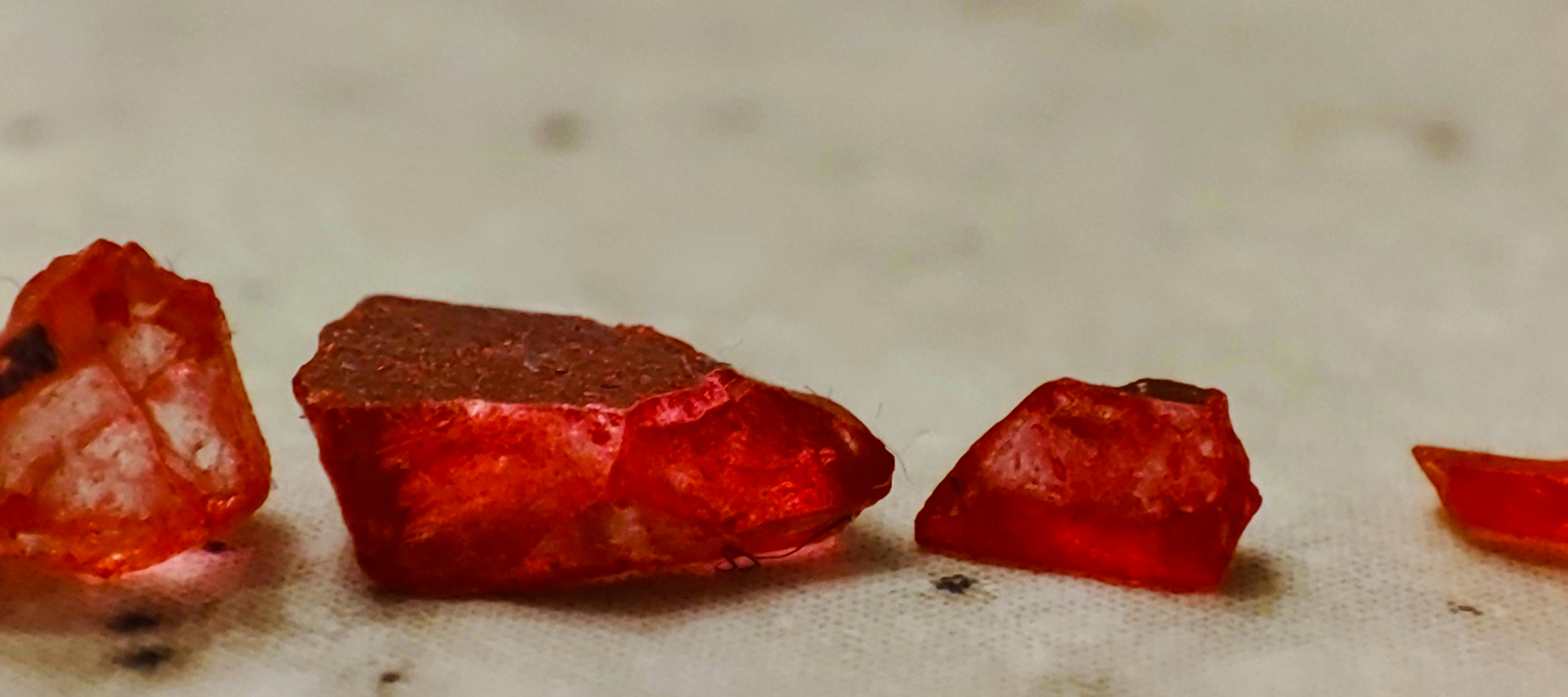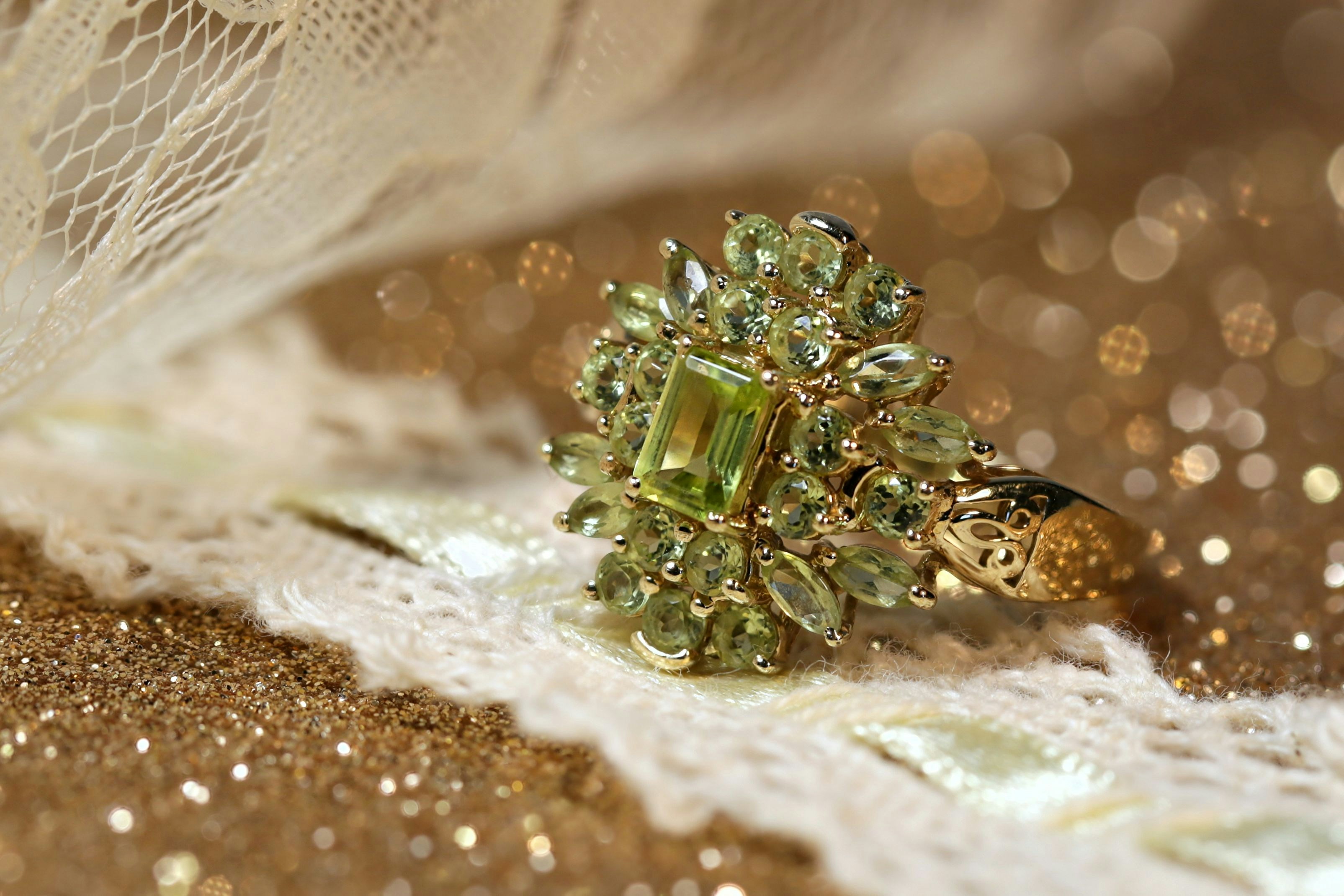How To Sell Gemstones: The Complete Guide

You’ve found yourself staring into a sparkling collection of gemstones, perhaps an heirloom from a cherished relative or treasures you collected over time. Now you're wondering, "How can I sell gemstones?" Well, you're in the right place. Selling gemstones, whether they’re vibrant rubies, deep blue sapphires, brilliant emeralds, or other colored stones, can feel intimidating if you're unsure where to begin. This detailed guide will help you navigate the process of selling precious gemstones.
First, let’s address the gemstone market. Did you know that experts predict it will reach a staggering $32.38 billion in value? This growing market, encompassing everything from diamond rings to gemstone jewelry, indicates a robust demand for precious and semi-precious stones. Knowing where and how to sell your gemstones is key to getting the best possible return. Let's explore various avenues to sell gemstones and understand this lucrative market.
Table Of Contents:
- Understanding Your Gemstones
- Where to Sell Gemstones
- Tips for Successfully Selling Your Gemstones
- FAQs About Selling Gemstones
- Conclusion
Understanding Your Gemstones

Before you sell gemstones, it’s important to understand what you have and potentially get your gemstones graded.
Gemstone Identification
First, determine what kind of gemstones you possess. Are they diamonds, sapphires, rubies, emeralds, or something else? If you are unsure, seek out a reputable gemologist or a qualified jeweler.
They can provide a professional identification and even an official gemstone grading report. This document outlines the characteristics of your gemstones and is important for determining their value.
The Four C's (or a Similar System)
Once you know what you have, learn about its specific quality factors. For diamonds, that’s the 4Cs – Cut, Color, Clarity, and Carat weight. Clarity refers to the gemstone's transparency.
While diamonds have a standardized grading system, gemstones follow a similar principle but with slight variations. Most experts agree that for most colored gemstones, color reigns supreme. Then come factors such as clarity, cut, carat weight, and the stone’s origin. For example, Burmese rubies command higher prices due to their vibrant color and rarity.
Treatments
Find out if your gemstones have undergone any treatments. Gemstone treatments are processes applied to enhance their appearance.
While common and accepted in the industry, they can affect a gemstone's value. It's vital to disclose any known treatments during the selling process to maintain transparency.
Gemstone Certification
Consider getting a professional gemstone certification. While optional, a certificate from reputable gemological laboratories, such as GIA, AGS, or EGL, can add credibility to your gemstones. This can often lead to better offers when you start selling.
The accompanying documentation from these institutions confirms a gemstone's authenticity and quality. It's particularly worthwhile if you have a valuable stone or are hoping to get a good price.

Where to Sell Gemstones
There are multiple platforms and avenues you can explore when you sell gemstones, each with pros and cons. You can sell precious gemstones online or in person.
1. Local Jewelers
A local jeweler might be your first thought. They can offer quick assessments and potentially purchase the gemstone directly. Plus, building a relationship with a local jeweler can be beneficial for future transactions.
But, local jewelers often specialize in finished jewelry like wedding bands, diamond rings, or drop earrings. They may not have a market for loose gemstones. Even if they do, their offers are sometimes lower than what you could obtain elsewhere. That's because they factor in their overhead costs.
2. Pawn Shops
Pawn shops offer immediate cash, making them an option if you need funds quickly. But keep in mind; they operate with a focus on recouping their money swiftly.
This usually means they'll offer a lower price than you would receive elsewhere. They also may not have gemstone experts on staff, so it's important to do your research beforehand.
3. Online Gemstone Marketplaces

Consider online gemstone marketplaces like Polygon. Launched 10 years after Opal Auctions by the same founders after realizing there was a need for such a platform in the gemstone world, the site offers numerous benefits.
These benefits include access to thousands of gem buyers and retailers, simple one-stone or full-inventory uploads, and competitive insights, according to their website. They provide specialized platforms catering specifically to gemstone buyers and sellers. Often, you create an account, list your gemstones with descriptions and images, and engage directly with potential buyers. Examples include:
Polygon - A well-established marketplace known for its global reach.
Gem Rock Auctions - A platform connecting buyers and sellers globally, facilitating a secure gemstone trading experience.
4. Online Auction Sites
Think about selling through platforms like eBay. Platforms such as eBay or even specialized jewelry auction websites like Worthy allow you to list and auction your gemstones to a wide audience.
Be mindful, though, you might encounter higher fees on these platforms compared to others. But, the potential to reach a larger pool of interested buyers makes it an avenue worth exploring.
5. Consignment Shops
Consignment shops, specifically those specializing in jewelry, offer another route. They typically showcase your gemstones in their store and take a percentage of the sale price as commission. This can be a good option if you have vintage jewelry or antique jewelry to sell.
It’s crucial to understand their terms, including commission rates and the duration they’ll display your gemstones.
Tips for Successfully Selling Your Gemstones
Whether online or in person, some universal tips will always ring true. These tips can help if you want to sell diamonds or other gemstones.
Presentation Matters
Just like staging a house for sale, how you present your gemstones influences their perceived value. Clean your gemstones carefully. Present them in an attractive and professional manner.
High-quality images with good lighting are crucial, particularly for online platforms. You can use these photos to sell jewelry or loose gemstones.
Research Current Market Values
Knowledge is power. Take the time to research and understand the current market value of the types of gemstones you’d like to sell. Explore comparable listings, recent auction prices, and gemstone pricing guides to get an idea of fair market rates.
Online gemstone retailers and auction platforms often offer this type of information for free, so utilize those resources. This is especially helpful when selling an engagement ring, as the value can fluctuate based on market trends.
Set Realistic Expectations
Getting a good return takes time. Be realistic. Know that it’s unlikely to receive a gemstone’s full retail value when selling. This is because jewelers, collectors, and buyers factor in their margins.
Remain open to negotiation. However, know your baseline price and be willing to walk away if you're uncomfortable with a particular offer.
Secure Shipping and Insurance
When shipping, utilize reputable couriers like FedEx, especially when using a platform like Worthy where they manage the logistics. You may be able to get a payment method set up where the buyer pays for fully insured shipping. This will give you peace of mind.
Proper insurance and tracking measures will mitigate any potential losses or risks. This is especially important when people sell valuable items like a diamond ring or pendant necklace.
Honesty is Key
To sell gemstones requires transparency. Provide accurate descriptions of your gemstones. Disclose any known treatments or enhancements.
Building a reputation for honesty fosters trust. This is important whether you're working with a trusted jeweler or selling gemstones online.
FAQs About Selling Gemstones
How should I sell my gemstones?
To sell gemstones, begin by identifying what you own through a reputable gemologist. Assess their value by considering factors such as color, clarity, cut, and carat weight (for diamonds, utilize the Four C’s).
Next, research selling options like online marketplaces or local jewelers. Prepare the stones with careful cleaning, excellent photos (if selling online), and accurate descriptions. Finally, prioritize security throughout the process with tracking and insurance for shipping and transparent communication with potential buyers.
Where is the best place to sell gems?
There's no one-size-fits-all best place. However, options for where to sell gemstones include:
- Online marketplaces
- Local Jewelers
- Pawn Shops
- Auction Houses (for high-end gems)
- Consignment Shops (also for higher value gemstones)
Choosing the right fit depends on factors such as the value of your gemstones, your preferred timeline, comfort with technology, and the level of control you’d like over the process. For instance, you can sell diamonds or a diamond engagement ring through an auction house, while a local jeweler may be a better option for a single yellow gold ring.
Do gemstones have resale value?
Generally, gemstones can retain or even appreciate in value. But many factors can sway their resale prospects, including the stone’s rarity, quality, market demand, economic conditions, and any certifications or documentation available.
For example, some gems, like high-quality rubies and emeralds, are known for their value retention. They often see an increase in price due to their limited supply. This can make it difficult for people to buy colored stones.
Is there money in selling gemstones?
Yes, the gem and jewelry market is a multi-billion dollar industry with growing demand for gemstones globally. However, the amount of money you’ll earn from selling gemstones depends on their type, quality, and where you sell them.
Research and strategic decision-making are key to maximizing your profit potential. If you're looking for the highest price, it's important to be patient. You also need to be comfortable walking away from offers that don't meet your needs.

Conclusion
Deciding to sell gemstones requires careful thought and informed decision-making. This is where arming yourself with information and taking time for proper research pays off. Understand the kind of gemstones you possess, assess their worth with reputable appraisals if needed, and explore your options, from local jewelers to online platforms.
Don't rush, consider all offers carefully and prioritize secure transactions. Most of all, approach this opportunity to unlock the value of your gemstone collection with a strategic lens. You'll increase your chances of getting the best return for those shimmering pieces of beauty. Good luck, and happy selling.

